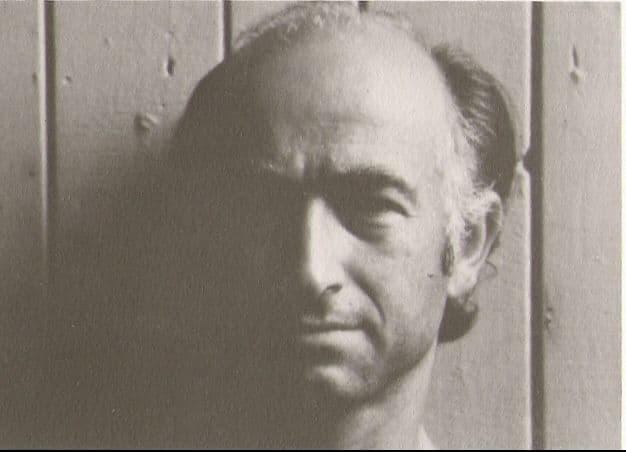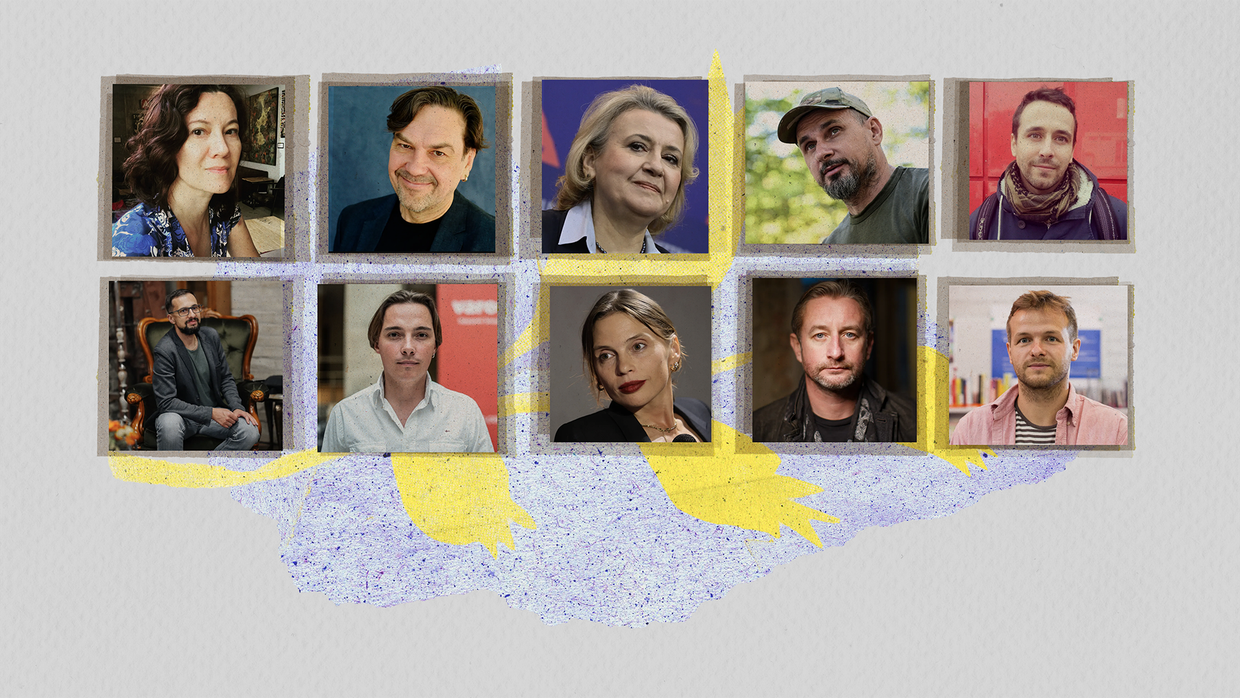Ukrainian-American author Yurii Tarnawsky dies at 91

Pioneering Ukrainian-American author Yuriy Tarnawsky has died at 91, his wife Karina Zalewska announced on Oct. 17 via his personal Facebook page.
Born in 1934 in Turka — then part of Poland, now in western Ukraine’s Lviv Oblast — Tarnawsky's family emigrated to Germany in 1944, where he attended school, and then settled in the U.S. in the early 1950s.
As a co-founder of the New York Group — a collective of Ukrainian emigre writers — Tarnawsky helped to expand and redefine contemporary Ukrainian literature through his embrace of narrative structure experimentation and linguistic innovation.
"His poetic work represents an entire galaxy for Ukrainian literature — his prose and dramaturgy embody the ecstasy of experimentation, and his views on art were radical in their unrestrained desire for change," New York-based Ukrainian author Vasyl Makhno told the Kyiv Independent.
"Tarnawsky, although he grew up and developed outside his homeland, earned the right to be called a great poet of the Ukrainian language."
Tarnawsky's literary career traversed poetry, fiction, drama, essays, and translation.
His trilogy "The Placebo Effect" — comprising "Like Blood in Water," "The Future of Giraffes," and "View of Delft"— is counted among his greatest works. The trilogy is notable for its interwoven short stories, which Tarnawsky called "mininovels," that blend existential inquiry with a sharp, absurdist humor fit for exploring themes like alienation in modern society.
Yet, despite his achievements, he was "heartbreakingly and cruelly underestimated at home" in Ukraine, according to Ukrainian author and scholar Alex Averbuch.
"The divide between 'diasporic' and domestic Ukrainian literature remains painful, at times feeling deeper than in the Soviet era. Yuriy stood inside that rift. He never stopped being Ukrainian, yet his Ukrainianness was never closed," Averbuch told the Kyiv Independent.
"He was what I would call a global Ukrainian, open to the world and to many languages and traditions, wary of the claustrophobia of national exclusivity. His sense of belonging was European in the best sense: dialogic, self-critical, curious, and free. The Ukraine he embodied is one we are still learning to reach."
In addition to his literary work, Tarnawsky also built a notable career in the field of technology. For a number of years, he worked at the U.S. tech giant IBM, where he was involved in pioneering projects related to automated language translation and artificial intelligence.
Those who knew and admired him, while deeply saddened by his passing, are confident that his work will live on and continue to influence future generations of authors.
"The last time we spoke on the phone was about three weeks ago — through the receiver, I heard the fading impulses of his voice, as if the dynamics of life were slowing down," Makhno recalled.
"But I hope that the statics resonate, reaching high octaves in the orchestration of the poet's marvelous style."











